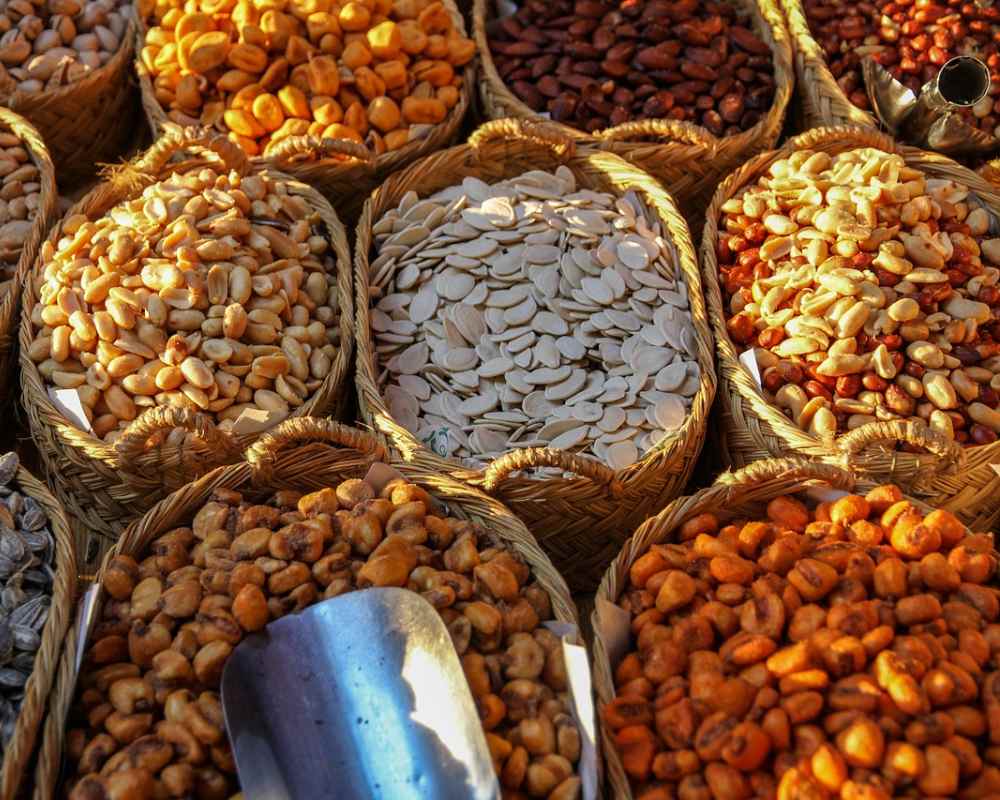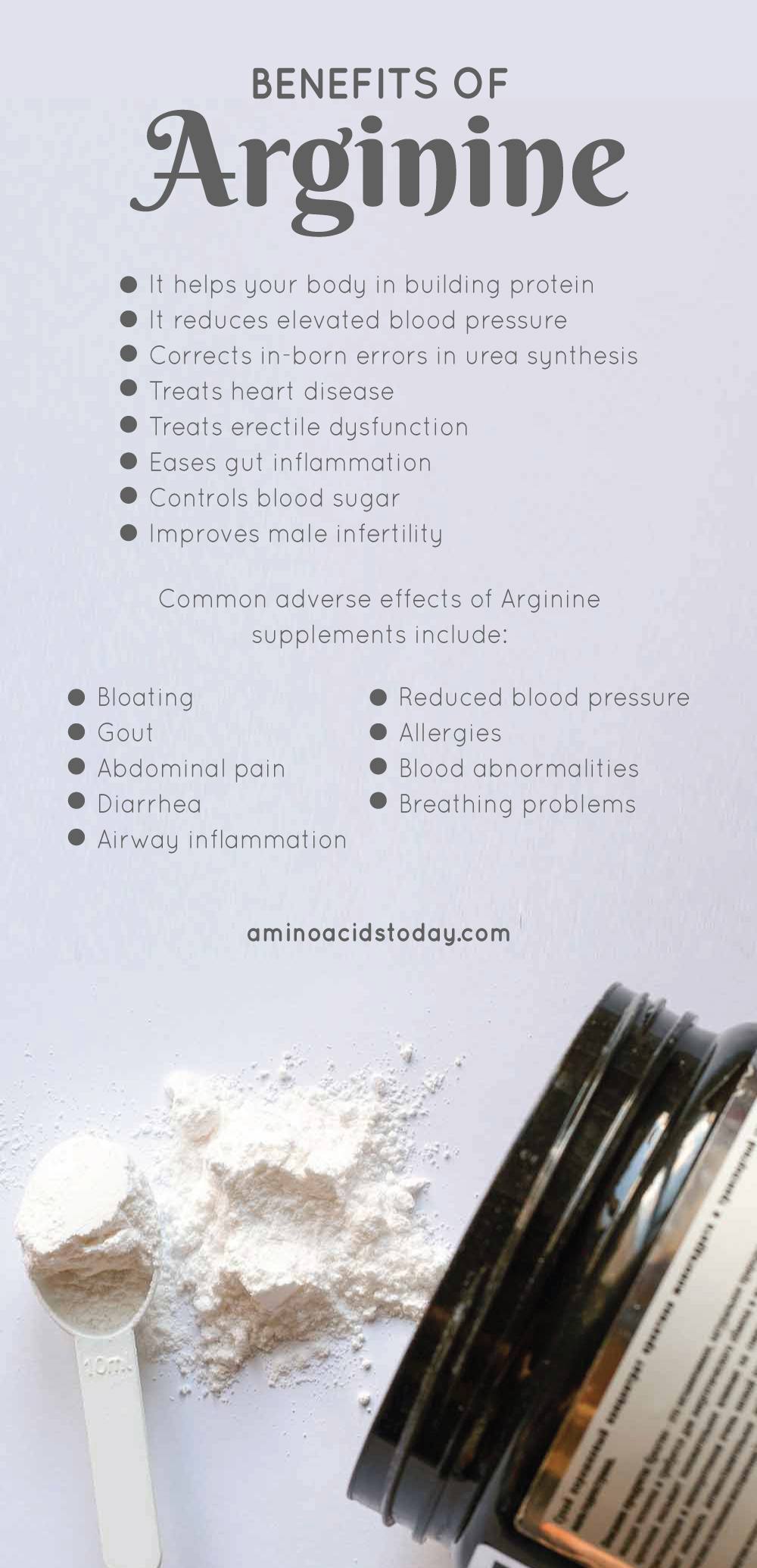
Amino acid Arginine foods include dairy, poultry, fish, and meat. It is one of the 20 protein-building blocks in your body. Some studies suggest that Arginine has health benefits. For instance, some claim that Arginine can relieve chest pain and improve erectile dysfunction, among many other benefits. That’s why some people choose to increase their Arginine by taking supplements. But some other experts worry about the risks that may come with having too much Arginine in your system. Both sides have valid points. We only need to strike a balance. And that is why we have put this article together. We want to tell you the natural food source where you can get Arginine. We will also talk about its potential benefits and risks.
Let’s first clear the air on this important fact. Your body naturally produces Arginine. All children need it to develop and grow properly. But because we can produce them naturally, a deficiency is very rare. And if you need some extra Arginine, you can get it from your meals. So supplements are usually not necessary for healthy adults. However, certain disorders can make you deficient in Arginine. In such conditions, you may need to eat more Arginine-rich foods or take supplements. But then too much of this amino has risks too. We will look into all of these as you read on.
Amino Acid Arginine Foods
One major benefit you stand to enjoy when you obtain your Arginine from food is that you are not likely to ever get toxic amounts. As such, you don’t have to bother about the adverse effects of Arginine consumption if you are getting it from dietary sources.
Thankfully, you can still get enough Arginine as a vegan. Plant-based proteins like chickpeas are good Arginine sources. To be honest, any protein-rich food will give you lots of Arginine naturally. Before we talk about plant sources, let’s talk about animal Arginine sources. They are as follows:
1. Turkey
The part of the turkey that contains the most Arginine is the breast. One cooked turkey breast will give you 16g of Arginine. The good thing is that turkey has much more than just Arginine. It also contains high concentrations of many other nutrients. They include omega-3 fats and B vitamins, among many others.
2. Chicken
Chicken is one other healthy and popular way to obtain protein. It is even one of the best animal sources of Arginine in the world. Just as it is in the case of turkey, the best part to find Arginine in chickens is the breast. One chicken breast will give you 9g Arginine and as much as 70% of your protein RDI.
3. Dairy
Since dairy foods are rich in protein sources, you can get lots of Arginine from them. Examples of dairy products include milk, yogurt, and cheese. Just 1 glass of milk will give you 0.2g Arginine. And just 4 oz. cheddar cheese will give you 0.25g Arginine.
4. Pork loin
Pork loin is a great Arginine source, second only to turkey. It is a protein-rich food. Its Arginine content is as high as 14g in each pork rib. Thankfully, the pork rib is a very lean cut. As such, it has a low-fat content.
Plant Sources of Arginine
The only sources of Arginine are not animal foods. You can get your Arginine from plant foods too. Some of the best plant sources of Arginine are as follows:
1. Pumpkin seeds
A single cup serving of pumpkin seed contains 7g Arginine. Aside from Arginine, they also contain lots of zinc and iron. You could add pumpkin seeds as crunchy salad toppings. You can also add them to your trail mix.
2. Chickpeas
Chickpeas are also known as garbanzo beans. They are one great source of fiber and protein. They are good alternatives to meat as protein sources if you are a vegan. A single cup serving of chickpeas (cooked) will give you 1.3g Arginine, and as much as 14.5g net proteins. They also contain 12.5g of dietary fibers.
3. Lentils
Lentils are also healthy plant sources of protein and fiber. So it should come as no surprise that they contain lots of Arginine too. A single cup will give you 1.3g Arginine. This same serving will give you 63% of your fiber RDI.
4. Soybeans
A cup of soybeans (roasted) contains 4.6g Arginine. Soybeans also make for great sources of essential minerals – magnesium and potassium. You can eat soybeans as healthy snacks instead of the many unhealthy ones out there.
5. Peanuts
One cup serving of peanuts will give you 4.6g Arginine. But you would not want to consume as much as one whole cup at a go. These nuts are high-fat foods. Instead of eating just peanuts, you can spread the cup out to eat several times in the week. Aside from protein, peanuts also contain vitamins E and B-3, as well as niacin and folate.
6. Spirulina
Spirulina is an alga. People often buy it in the form of powder. This powder can help load up your smoothies with some extra nutrients. A single cup serving of spirulina contains 4.6g Arginine. It also contains lots of potassium, calcium, niacin, and iron.
Benefits and Risks of Arginine
Arginine has 2 main effects. Firstly, it helps your body in building protein. Secondly, your body converts it to nitric oxide, which has many other benefits. With these 2 effects, Arginine has a vast array of potentials.
The benefits of Arginine range from simple chest pain to more severe heart conditions. It also helps your body to build muscles and repair wounds. It also improves male fertility.
Other Arginine benefits include the following:
- It reduces elevated blood pressure
- Corrects in-born errors in urea synthesis
- Treats heart disease
- Treats erectile dysfunction
- Eases gut inflammation
- Controls blood sugar, especially in people suffering from diabetes
Despite these many benefits, there are certain risks associated with Arginine if you consume too much. Some common adverse effects of Arginine supplements include:
- Bloating
- Gout
- Abdominal pain
- Diarrhea
- Airway inflammation
- Reduced blood pressure
- Allergies
- Blood abnormalities
- Breathing problems
The FDA does not monitor or regulate supplements. So you must buy from a high-quality and reputable brand if you are taking supplements. Your best bet is to get your supply from amino acid Arginine foods. If you get your Arginine from food, the benefits far outweigh the risks.
